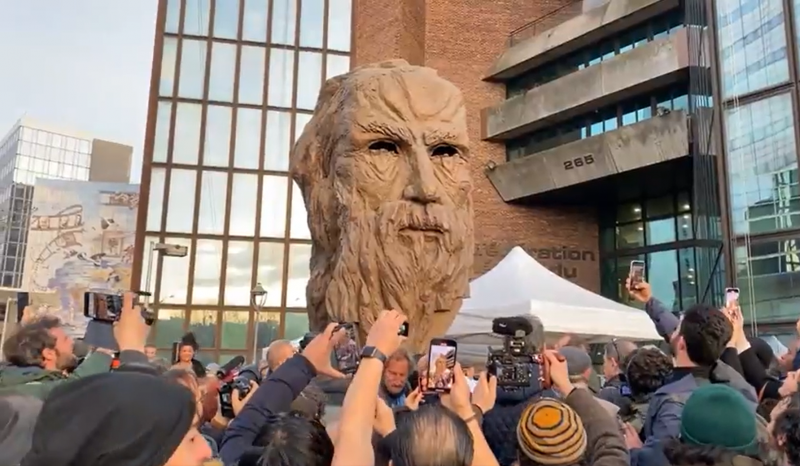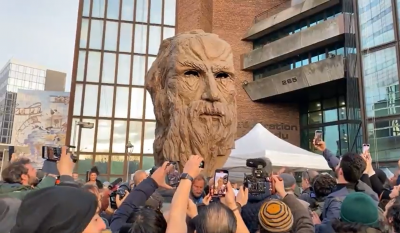In Paris, a statue of the Syrian poet and philosopher Abu al-Ala al-Maari was inaugurated in the town of "Montreuil" in the suburbs of the French capital. The unveiling ceremony of the massive bronze statue (3.25 meters tall and weighing one and a half tons), created by Syrian sculptor Asim al-Basha, was attended by dozens of Syrians, French, and Arabs. With a speech about the symbolism of the project delivered by the director of "Najat", the Syrian artist Faris al-Halou, and a welcoming address about the statue by the mayor of "Montreuil", Patrice Bessac, the unveiling of the monument of the philosopher known as "the prisoner of the two prisons" took place.
Abu al-Ala al-Maari was a poet, philosopher, writer, and Arab thinker, and one of the pioneers of the fourth and fifth centuries AH during the Abbasid era. His full name is "Ahmad ibn Abdullah ibn Salman al-Tanukhi al-Maari." He is commonly referred to as Abu al-Ala, and he was dubbed al-Maari after his birthplace, the city of Ma'arrat al-Nu'man in the Idlib province in northwestern Syria. Al-Maari is considered one of the prominent poets of the Abbasid era and a distinguished figure in Arabic literature. He contracted smallpox in his childhood, which resulted in the loss of his sight, but this did not prevent him from seeking knowledge. Through his unique thoughts, he contributed to changing the prevailing culture of his time and combating the traditions established by his predecessors. His poetry also served to express his personal experiences, reflections, and views on life and people.




